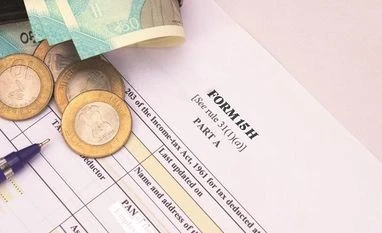As we enter 2022-23 (FY23), remember April is a good time to look into your tax planning for the year ahead. For instance, take steps to save on tax deducted at source (TDS) on fixed deposits or exemption from filing income-tax return (ITR).
Aakanksha Goel, direct tax partner, TR Chadha & Co. LLP. says, “With the start of the new fiscal year, taxpayers will need to submit declarations to claim exemption under Income-Tax (I-T) Act, 1961, which includes filing Forms 12BBA, 15G, and 15H.”
Form 12BBA: A new Section 194P inserted in I-T Act, 1961, provides senior citizens above the age of 75 years, having only pension and interest income from accounts maintained with banks in which they receive pension, will be exempted from filing ITR.
In this regard, a declaration in Form 12BBA needs to be furnished by the senior citizen to the bank declaring pension and interest income.
“Apropos such declaration, the bank will compute the taxable income of such a senior citizen and deduct tax appropriately,” says Goel.
For the purpose of availing of such exemption from filing ITR, it is mandatory for a senior citizen to physically furnish a declaration in Form 12BBA to the specified bank, in accordance with Rule 26D of the I-T Rules, 1962.
Suresh Surana, founder, RSM India, says, “Form 12BBA requires a taxpayer to specify details such as name, permanent account number (PAN), details of total income, and details of claims, such as deduction under Chapter VI A and evidence thereof.”
Chapter VI A of the I-T Act contains various sub-Sections of Section 80 that allow an assessee to claim deductions from gross total income.
Gopal Bohra, partner, N.A. Shah Associates, says, “To avail of this benefit, senior citizens should ensure they do not have any other income, other than pension income and interest from account maintained with the same bank in which pension is received, and furnish a declaration in Form 12BBA to the bank, along with details of investment-linked deductions (80C, 80D).”
No time limit has been prescribed for submission of Form 12BBA to the bank.
“We suggest senior citizens submit Form 12BBA at the beginning of the year to avoid TDS under Section 192/194A,” says Bohra.
Forms 15G and 15H: The I-T law allows taxpayers to receive certain incomes (interest, dividend, rent, and insurance commission) without deduction of TDS.
Deepak Jain, chief executive officer, TaxManager.in, says, “Forms 15G and 15H are self-declaration forms submitted by an assessee to the bank, requesting not to deduct TDS on interest income since their income is below the basic exemption limit in the new fiscal year.”
Note a taxpayer can avail of such benefit only if the tax on his/her total income is nil. He/she can do so by furnishing a declaration in Form 15G/15H, along with a valid PAN.
Form 15G is submitted by individuals below 60 years and Hindu Undivided Families, while Form 15H is submitted by individual senior citizens.
Naveen Wadhwa, deputy general manager, Taxmann, says, “An eligible person can furnish Form 15G or a resident senior citizen can furnish Form 15H to the payer. The declaration in Form 15G/15H can be furnished in a paper format. Alternatively, it can be furnished electronically after duly verifying it through an electronic process.”
When the recipient gives a declaration to the payer of income, along with his/her PAN, the payer will not deduct tax at source.
Regarding Form 15G, Jain says, “Another condition to be fulfilled is that the total income for the year is less than the basic exemption limit of that year — which is Rs 2.5 lakh for FY23.”
Regarding Form 15H, for individuals aged above 60 years, the basic tax exemption limit is Rs 3 lakh for Assessment Year 2023-24. The benefits of these forms cannot be availed of by non-resident Indians. If you miss submitting these forms, you can claim this amount only at the time of filing ITR and seek a refund.
“Forms 12BBA, 15G, and 15H are required to be submitted for each fiscal year,” adds Surana.
Unlock 30+ premium stories daily hand-picked by our editors, across devices on browser and app.
Pick your 5 favourite companies, get a daily email with all news updates on them.
Full access to our intuitive epaper - clip, save, share articles from any device; newspaper archives from 2006.
Preferential invites to Business Standard events.
Curated newsletters on markets, personal finance, policy & politics, start-ups, technology, and more.
)